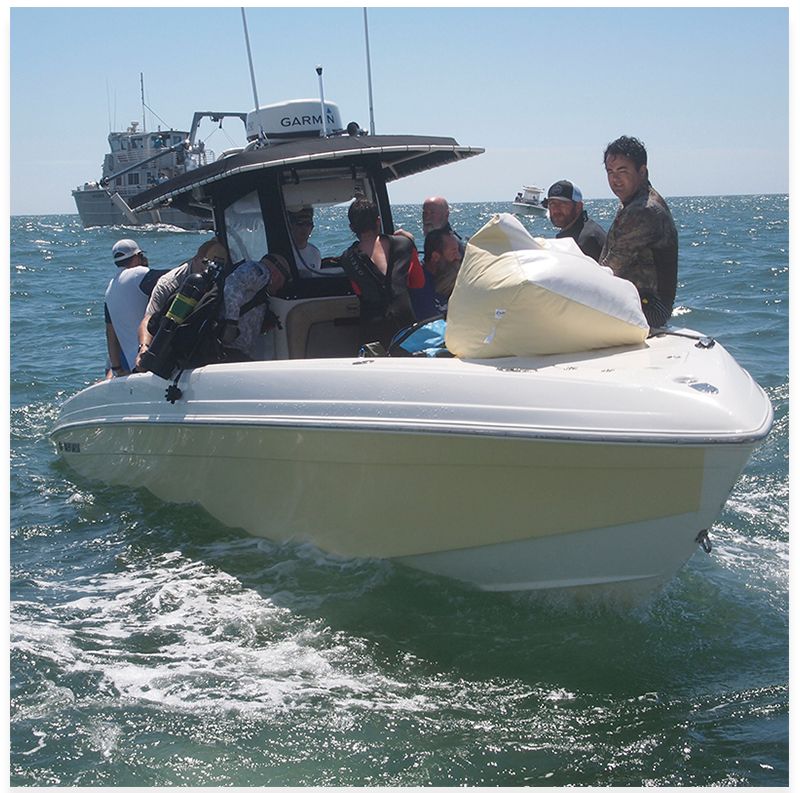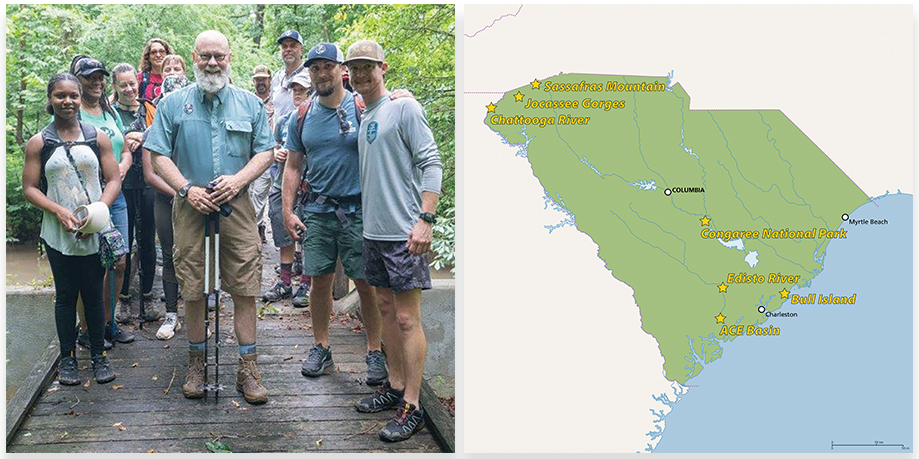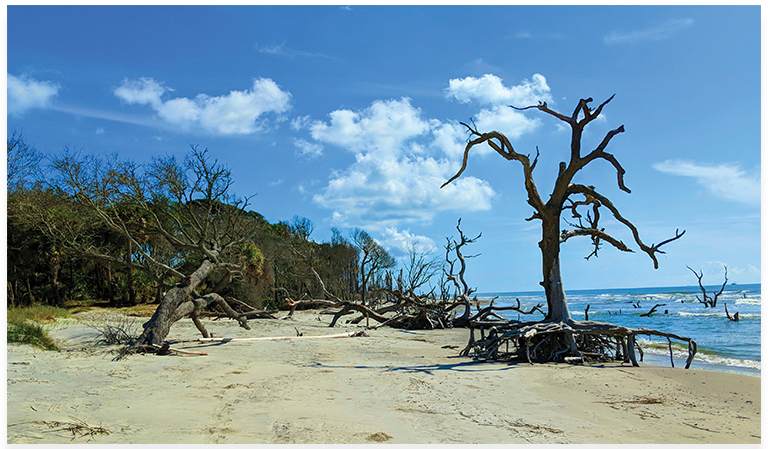July’s expedition incorporates a week in the Lowcountry

Last July, teams deployed “smart reefs,” which will serve as observation systems, monitoring sea level rise and other effects of climate change.
Major General Tom Mullikin was at the Mount Everest base camp in 2019 when he had the idea to launch the SC7 expedition back home in South Carolina. He likened seven of our state’s most stunning places to the highest peaks of the seven continents and dedicated himself to sharing and protecting them. “I’m on Everest with my son, and we’re both just laughing as I realize that I need to focus my energy on the ‘summits’ we have at home,” Mullikin recalls.
This summer, he’ll walk from the Appalachians to the Atlantic for the third time as the leader of the 30-day SC7 trip that roughly follows the Palmetto Trail. The seven wonders—the Jocassee Gorges, Sassafras Mountain, Chattooga River, Congaree Swamp, Edisto River, Bulls Island, and the ACE Basin—are highlights, but they play a supporting role in the project’s goal of preserving lesser-known places like the Black River in Williamsburg County, where the expedition’s presence has already helped raise funds for a new state park. On nearly every day of the trip, Mullikin and the participants will host a community event that draws politicians and cultural influencers for a shared adventure in nature.
Mullikin’s experience as the major general of the SC State Guard—including during the devastating 2015 floods that followed Hurricane Joaquin—lend credibility when he invites elected representatives to put politics aside and prioritize conservation. He also serves as chair of the SC Floodwater Commission, a post that has helped convince him that the state should adapt to rising sea levels by letting water come in and then guiding it out, versus trying to hold back the ocean.

This will be the third year Tom Mullikin (above left, center) leads a 30-day expedition exploring the state’s seven wonders (right), encouraging conservation efforts and people to lead more active lives.
Lt. Governor Pamela Evette is a regular participant, and stops have included bringing together local environmentalists with SC Ports to support Crab Bank’s renourishment, as well as planting spartina grass to rebuild marshes inundated by rising tides and erosion. “What we’re doing is not aspirational—it’s operational,” Mullikin explains. “We’re not sitting in rooms talking ugly about each other. We’re actually doing things.”
This summer’s expedition incorporates a week in the Lowcountry, featuring a dive in the Cooper River and a honeybee-protection initiative with the Bee Cause project at Middleton Place. The Charleston events align with Adventure Out Week (July 20-26), a partnered program spearheaded by Dr. Susan Johnson, MUSC’s director of health promotion. Each day of the week incorporates activities (open to the public) centered on wellness and being outside, including yoga and Pilates classes, surf therapy for women, and workshops.
A third component, the SC7 Fitness Challenge, runs in conjunction with the 30-day trek. Since most supporters can’t join for the entire 300-mile walk, the challenge allows remote participants to commit to daily step targets.

Bulls Island, a 5,000-acre maritime forest where more than 275 bird species can be found, is one of the state’s seven wonders.
SC7 is multifaceted and ambitious. At its core, the wellness aspects recognize that people who exercise are healthier, and that time spent outdoors makes us happy. The next step is to appreciate the fragile value of the places we explore and the threats they face. That creates public will and pressure to conserve and protect our state’s marshes and waterways. Finally, SC7 closes the loop by leading decision-makers directly into the fold. Instead of conference calls to talk about our natural resources, SC7 brings critical stakeholders together with the public to actually go out and experience the beauty our state has to offer.
Together, the three SC7 programs back a trio of goals: economic development through ecotourism, environmental conservation through active participation, and health and wellness through exercise.
“We’re trying to promote getting people into the outdoors,” says Johnson. “When people are physically active and also learning, they start to think about our natural resources in an active instead of a passive way.”
Higher Ground - Full Documentary from Alexander Kreher on Vimeo.